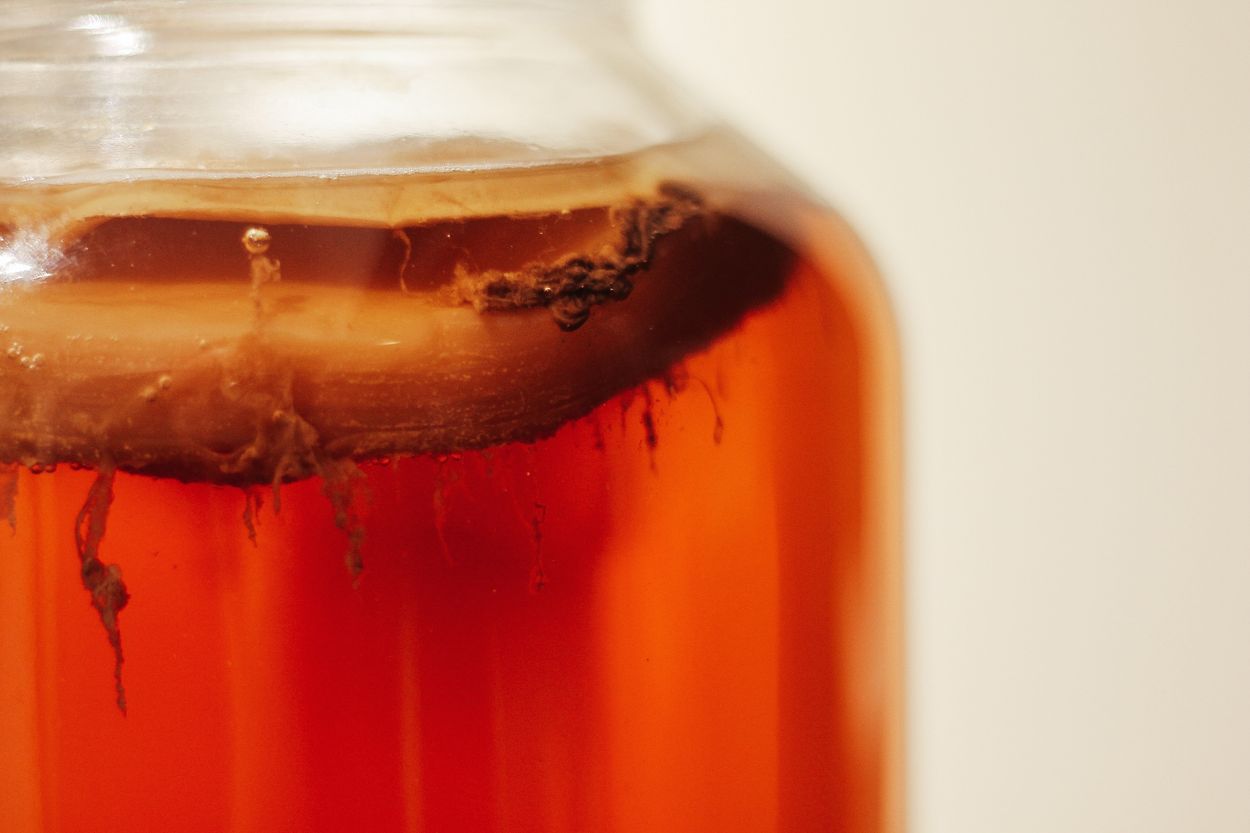Coffee is a drink made from brewing roasted coffee beans. Kombucha, on the other hand, is a fermented beverage made with tea, sugar, bacteria, and yeast.
Coffee and Kombucha, both are top-notch beverages consumed by the people of the US. According to the statistics, 51% of people aged 25 to 34 consume kombucha, whereas 64% of the population consumes coffee.
Coffee and Kombucha have some major key differences, they can be healthy or unhealthy depending on the choices and limits.
When comparing coffee vs kombucha, you’ll find that they both are crowd-pleasing drinks that contain natural ingredients that are good for your health. They both can boost your metabolism because of the caffeine content. They mainly differ in their taste and preparation methods.
This article is all about getting to learn what coffee and kombucha have in common and how they are different from each other.
So if you’re curious to know more about kombucha, keep on reading.
What Is In Coffee?
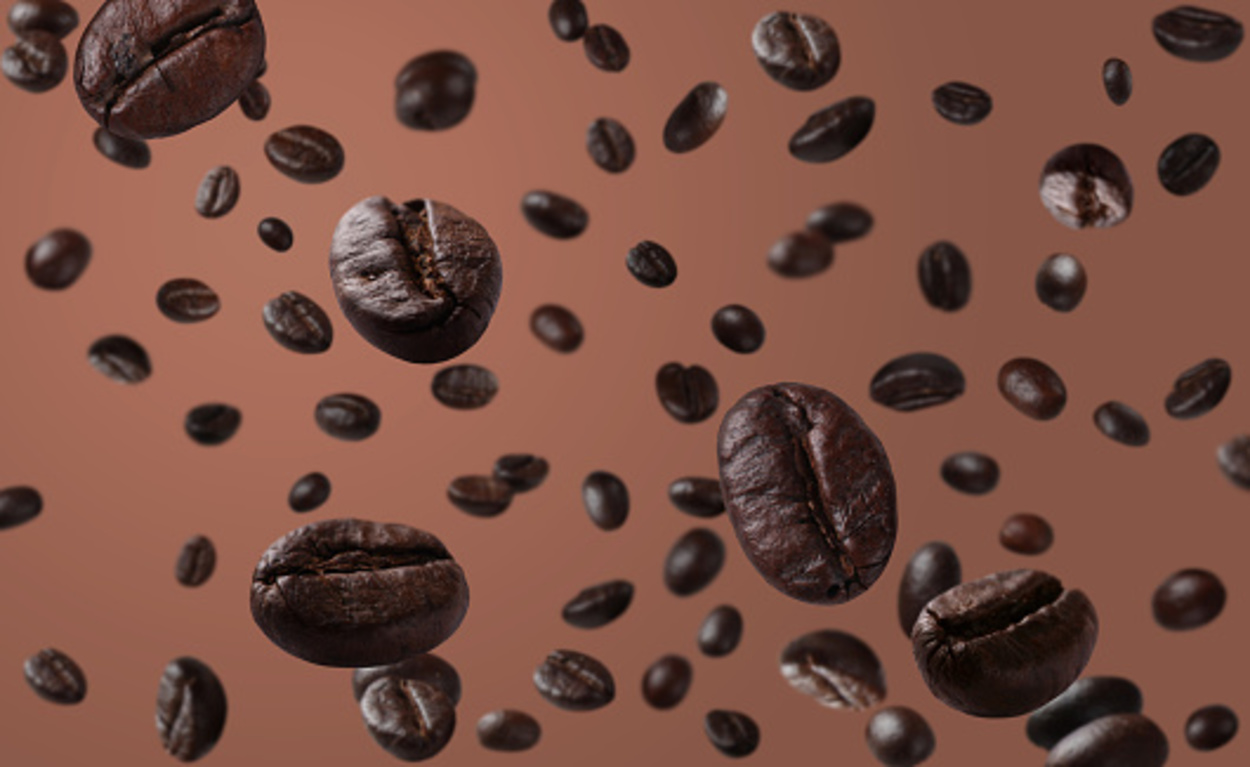
Coffee is a beverage consumed throughout the year and there are different varieties of coffee consumed around the world.
The most common coffee around the world is known as Espresso, an Italian tradition. It contains mainly 3 ingredients, coffee, milk, sugar and sometimes cream.
Espresso has a sweet taste of caramel, a freshly brewed espresso mixed with its elements gives off a nutty, vanilla smell.
Coffee acts as a savior for the ones who wake up with a headache or need to kick start their day to stay completely focused and concentrated.
What Is In Kombucha?
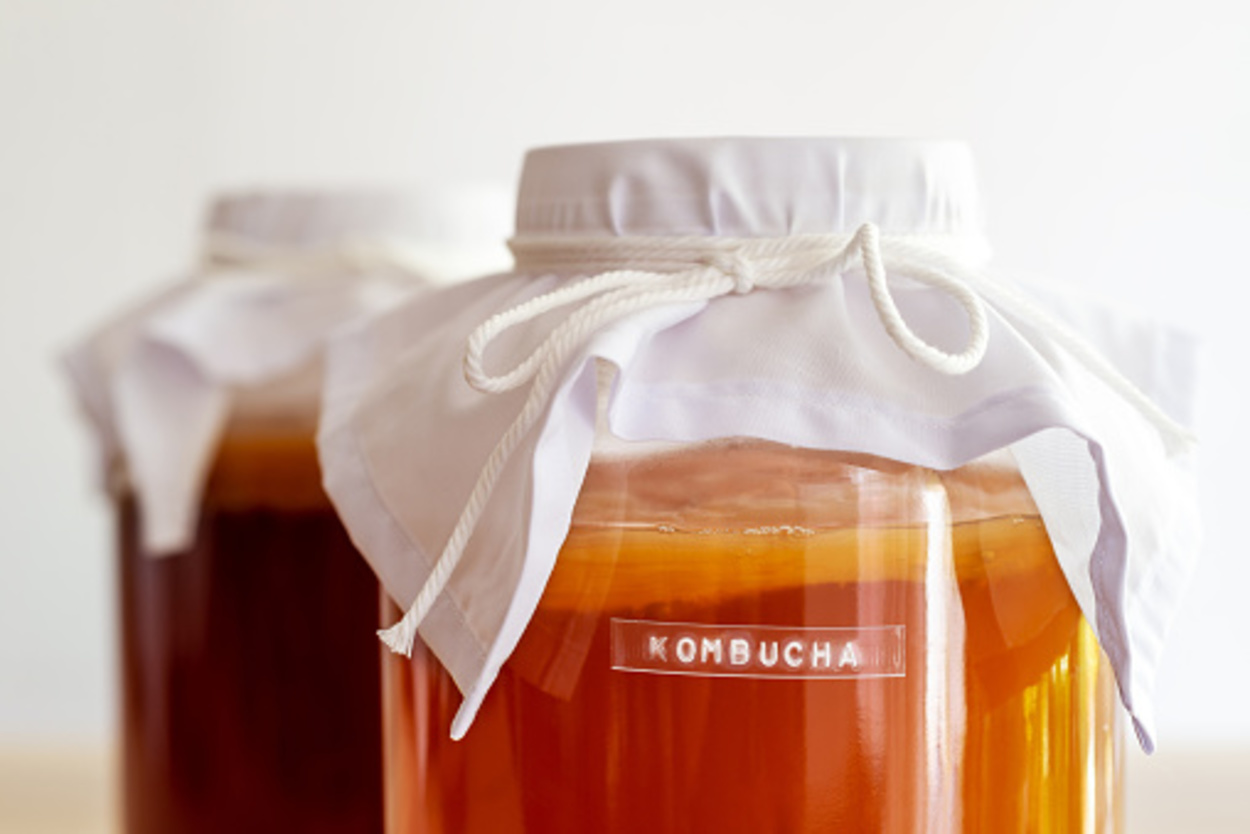
Kombucha is a drink made with tea, sugar, bacteria, and yeast. It can be taken as either black or green tea and is only consumed widely due to its gut-healthy benefits.
In terms of its taste and smell, it tastes and smells like mild vinegar, which you can only overcome by adding sugar.
The mixture of tea, sugar, yeast, and bacteria is set aside for a week or so for fermentation. During this time, bacteria and acids develop in the mixture as well as some amount of alcohol.
It’s due to alcohol that you get a mild taste of vinegar when you opt for a kombucha.
Ingredients Of Coffee And Kombucha
Coffee and Kombucha have a variety when it comes to their ingredients, here is the list for their formulation:
| Coffee | Kombucha |
| Coffee Beans | Tea |
| Sugar | Sugar |
| Milk | Bacteria |
| Cream | Yeast |
Calories Comparison Of Coffee And Kombucha
Calories determine the energy you will be getting from a certain beverage. It gives you energy but causes weight gain so you might want to look out if you’re weight conscious.
| Espresso Coffee (8 ounces) | Kombucha (8 ounces) |
| 20 calories | 30 calories |
According to the table, you are gaining more calories from kombucha instead of coffee. This means more energy from kombucha and less from coffee.
If you’re someone going through a weight loss journey and have to maintain a limit for calories then you might want to go with black coffee as it’s only 2 calories per cup.
But if you’re someone whos looking to boost their physical mechanism, kombucha is the perfect pick for it.
Caffeine Comparison Of Coffee And Kombucha
Caffeine is found in tea leaves and coffee beans, it is a stimulating agent which stimulates the brain and central nervous system.
It works by blocking off the adenosine receptors which makes you feel awake.
| Coffee | Kombucha |
| 90mg | 8mg |
Coffee contains way more caffeine than Kombucha, this means if you’re caffeine-sensitive you might want to skip the coffee and pick Kombucha.
However, according to the FDA, a healthy individual should have no more than 400mg of caffeine daily, this means it’s safe for you to consume around 2 cups of coffee per day.
Keep in mind that caffeine can have some side effects if overdosed, such as insomnia, headache, dehydration, anxiety, and dizziness. So it’s better to stay put within the limit. You can learn more about caffeine overdose here.
Does Kombucha Make You Poop?
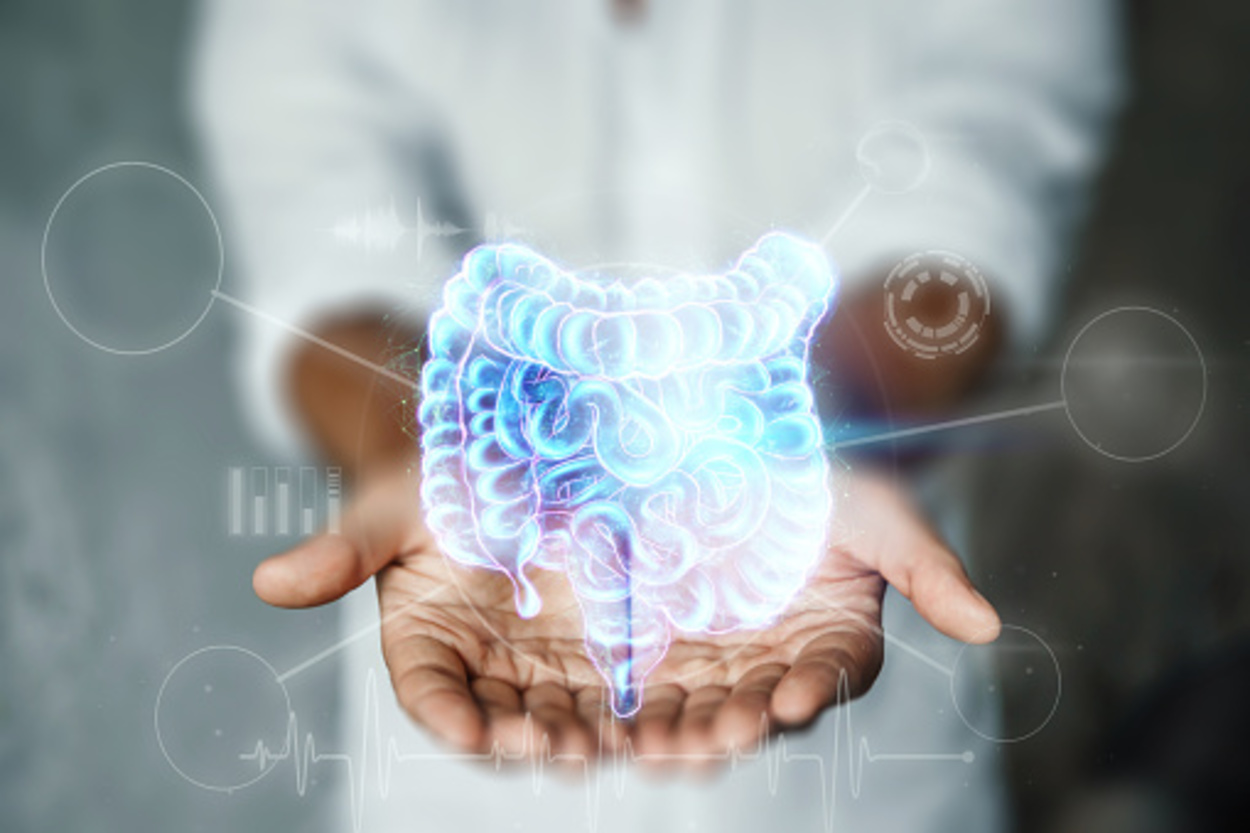
Yes, Kombucha can make you poop.
Kombucha promotes gut health as it’s loaded with probiotics found in your gut. Probiotics improve intestinal health by breaking food into smaller compounds that are easier to digest.
The probiotics also reduce blood cholesterol and enhance the immune response.
Kombucha may not act as a laxative itself but it may prevent constipation. It can help decrease constipation by 10 to 40 percent in adults.
Coffee can cause dehydration which can, in turn, cause constipation, this is not the case with Kombucha as it can keep you hydrated.
Can Kombucha Get You Drunk?
Yes and No. Kombucha is a fermented drink, when left for fermentation it forms bacteria, acid, and a small amount of alcohol.
The longer it is left for fermentation the more potential it has to have an increased amount of alcohol.
The amount of alcohol in one kombucha is so small that it won’t make you drunk but if you’re dedicated to drinking around 8 bottles of kombucha then you might feel the effect of one beer.
The effects can be stronger if you have low alcohol tolerance and if you’re suffering from histamine intolerance you’re likely to feel drunker after having Kombucha.
Is Kombucha Good For Weight Loss?
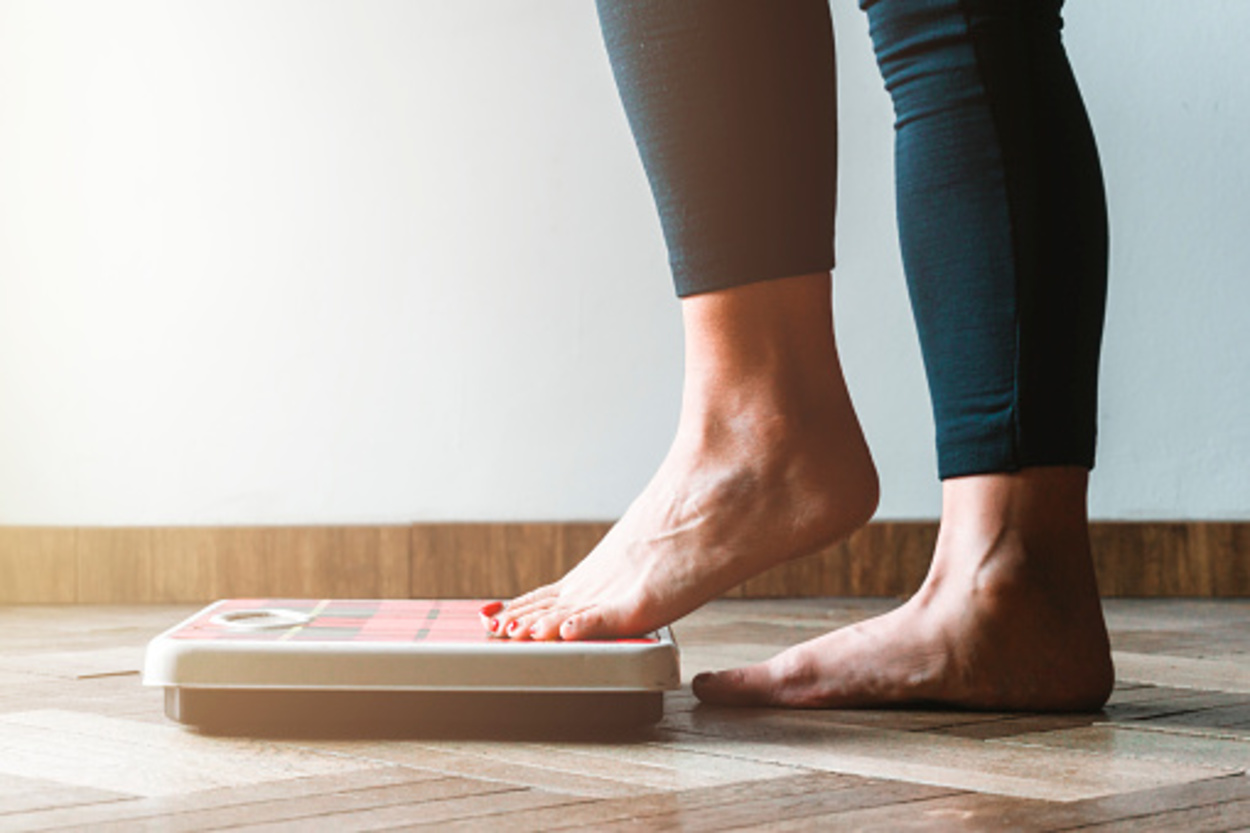
Yes, Kombucha is good for weight loss as kombucha tea is prepared from green tea and green tea is known to reduce belly fat and clear one’s body metabolism.
Kombucha increases your metabolism which in turn increases the speed of calorie utilization of your body. This allows fats stored anywhere else to metabolize and helps you lose weight.
In my opinion, Kombucha is a great tea for metabolizing and boosting your energy right after a gym session, it can help you recharge and rehydrate your body and aid in burning extra fat.
However, Kombucha has a relatively higher calorie count than coffee, this means it might give you energy but can cause weight gain too if you consume it daily, especially in large quantities.
Sipping an occasional kombucha or the one under 120 calories per bottle can be proven beneficial for your waistline.
Can Kombucha Replace Coffee?
No Kombucha can’t replace coffee, but it’s packed with beneficial nutrients that can be proven healthy.
However, Kombucha tea can be a great substitute if you’re looking to quit coffee and other beverages.
Kombucha can be great if you’re avoiding caffeine since it’s not clear how much caffeine it contains but a lot less than what coffee offers you.
The only downfall is since it contains a small amount of caffeine it might not be enough to keep you awake for the night, however, it can help you have a good sleep.
Side Effects Of Too Much Kombucha
The FDA recommends that 4 oz of kombucha is safe to be consumed a day. However, there may be potential side effects of consuming too much Kombucha every day such as:
- It can lead to excess calorie consumption
- It can cause bloating
- It may result in digestive stress
- It may contain excess amount of added sugar
- It can be dangerous for the ones with weaker immune system
- It can lead to excess caffeine consumption
Is Kombucha Better Than Coffee?
The answer is subjective.
Kombucha can be a great beverage if you’re trying to cut down some caffeine or sodas. It is packed with a lot of health benefits such as reducing body fat, increasing body metabolism, improving gut health, rehydrating, and refreshing your mood.
If you’re low caffeine tolerance you can opt for kombucha, it also contains antibiotics and probiotics.
In terms of taste, kombucha can taste like mild vinegar due to the little amount of alcohol and the green tea but it’s all on you as you can add some honey for more flavor.
Coffee on the other hand can help boost your performance mentally and physically, it can help you stay awake and focused.
Can You Mix Kombucha With Coffee?
Yes! You can mix the two to make Coffee Kombucha.
It’s a type of regular kombucha in which you ferment brewed coffee instead of tea.
You can learn to make coffee kombucha in this video below:
Summary
Kombucha and coffee are two different beverages, coffee tends to have a range when it comes to flavors and colors.
Kombucha is a fermented beverage with high calories and a little amount of alcohol but it has many health benefits that can help you improve your metabolism.
Coffee on the other hand gives you a boost of energy which can improve your physical and mental functions for a time being.
With that being said, I hope you can make a spontaneous decision for yourself next time you come across coffee and kombucha.
Other Articles
- Click here to see the visual story of this post
- How Much Caffeine Is In Coffee? (How Much is Safe?)
- Caffeine Headaches (Causes and Remedies)
- Is Coffee Zero Calories? (The Truth)
- Is Coffee Gluten-Free? (Revealed)
Contents
- 1 What Is In Coffee?
- 2 What Is In Kombucha?
- 3 Ingredients Of Coffee And Kombucha
- 4 Does Kombucha Make You Poop?
- 5 Can Kombucha Get You Drunk?
- 6 Is Kombucha Good For Weight Loss?
- 7 Can Kombucha Replace Coffee?
- 8 Side Effects Of Too Much Kombucha
- 9 Is Kombucha Better Than Coffee?
- 10 Can You Mix Kombucha With Coffee?
- 11 Summary
- 12 Other Articles

